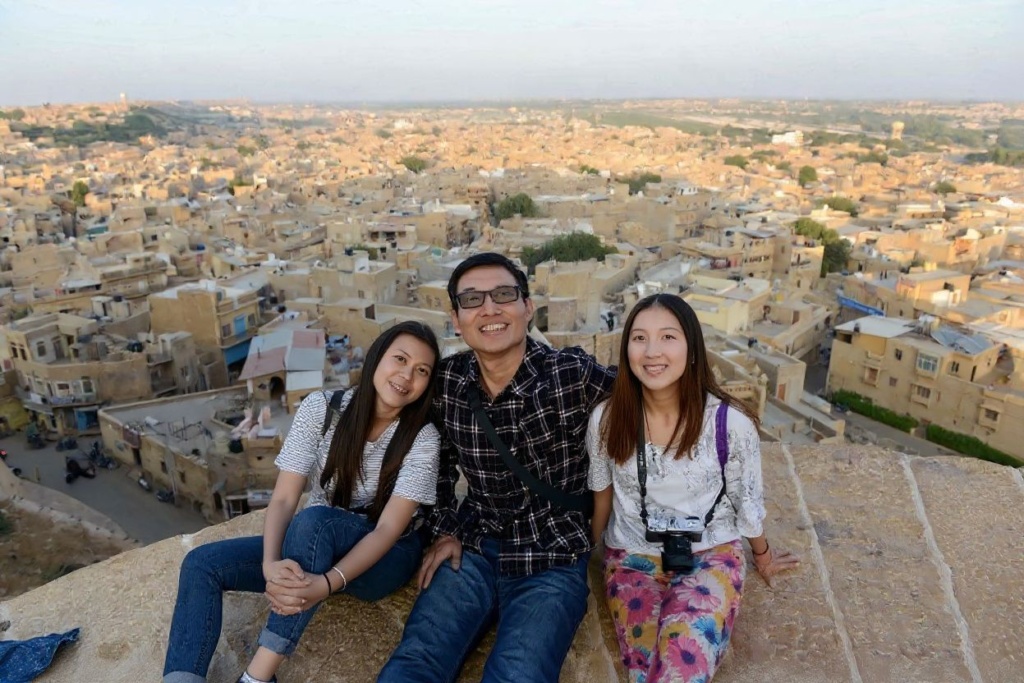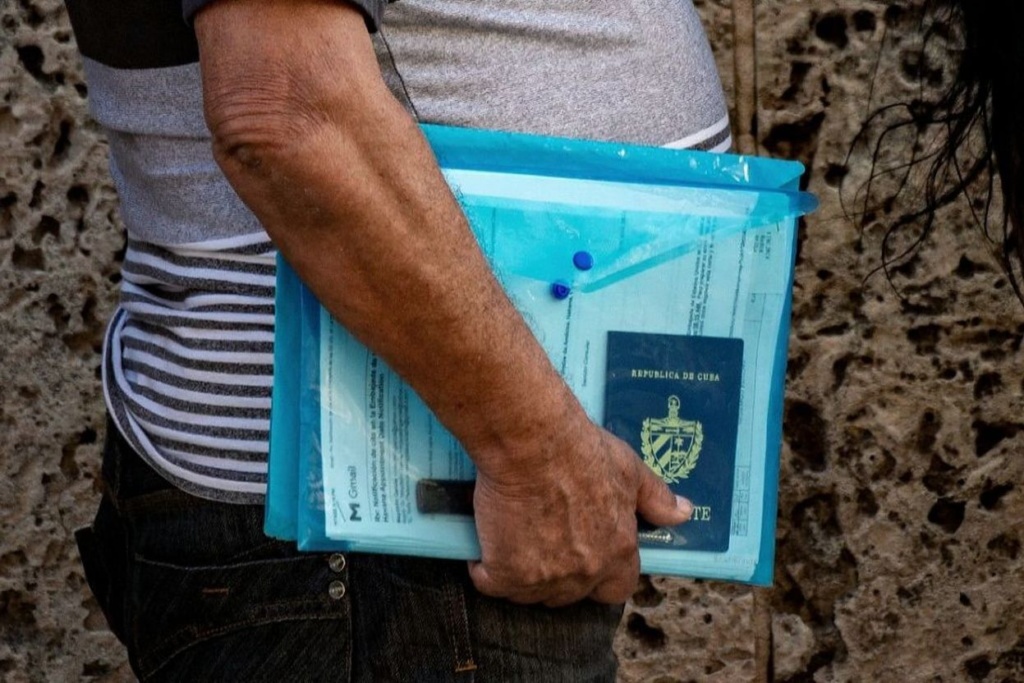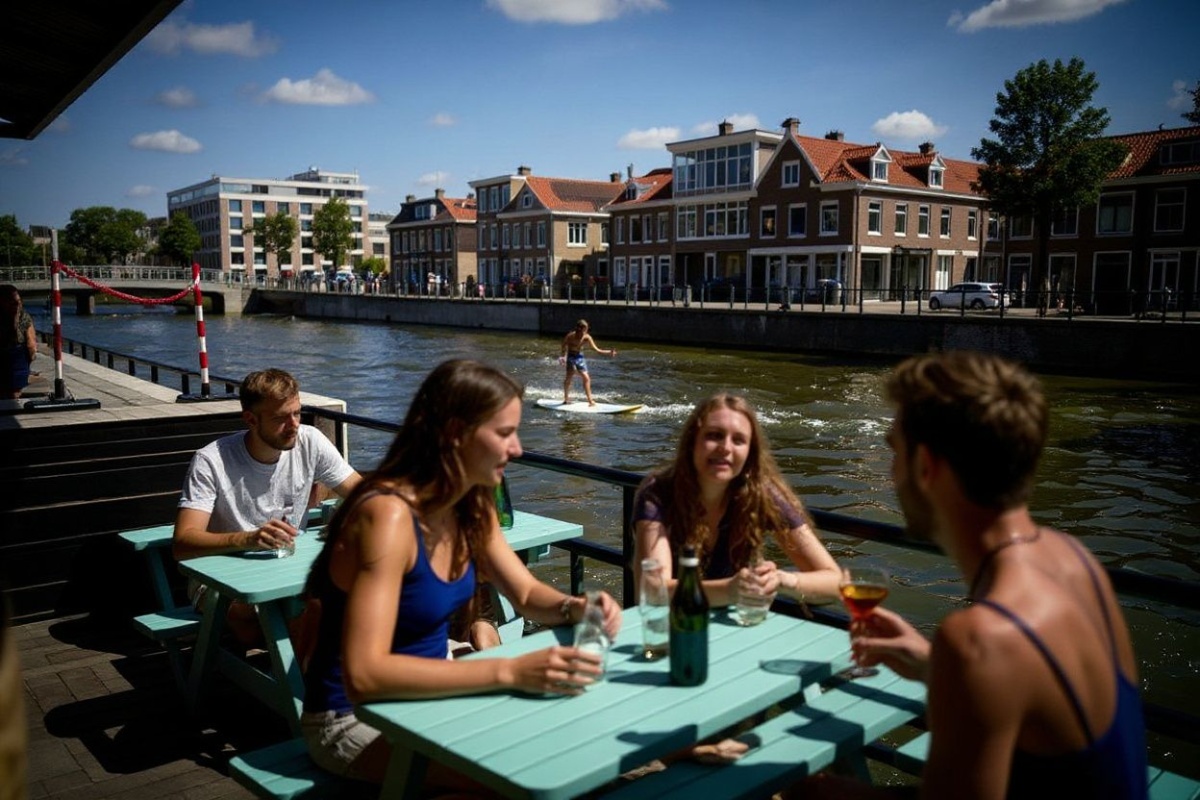
Looking for the easiest countries to get permanent residency?
Many international students dream of settling down in the country where they go to university, aiming for permanent residency after graduating. This is driven by the desire for stability, better career prospects, and the opportunity to build a better life.
While the process of obtaining permanent residency status can be difficult in some countries, there are places where it’s easier for students to transition from a student visa to permanent residency.
For example, countries like Germany, Finland, and South Korea have attracted many international students due to their welcoming immigration policies — all in hopes of attracting the skilled and talented to remain in their countries.
 The easiest countries to get permanent residency will also open the doors for your family to make their move too.
The easiest countries to get permanent residency will also open the doors for your family to make their move too.
Why you should apply for permanent residency after your studies
As an international student, applying for permanent residency (PR) after university can open the doors to many great possibilities for your future. Here’s why it is a smart move:
Job opportunities
Securing PR could lead to more job opportunities in the country you are in as many employers prefer candidates with the legal right to work long-term. According to a report by the Canadian Bureau for International Education, about 53% of international students in Canada intend to apply for PR because it enhances their chances of finding employment after graduation.
Stability and security
Having PR allows you to build a life in that country without any worries about visa renewals or restrictions.
Access to benefits
Having PR often gives you access to healthcare and education subsidies. For example, in Australia, PR holders are eligible for Medicare, the country’s public healthcare system, which covers medical expenses.
Family visa
PR status may allow you to sponsor family members to join you. This is important for those with spouses, children, or elderly parents.
Increased financial opportunities
Some countries offer PR holders financial incentives or tax benefits. For example, Singapore provides tax relief and subsidies for PR holders.
 Ensure you have all your documents and passport updated when applying for your PR.
Ensure you have all your documents and passport updated when applying for your PR.
5 things to consider when applying for permanent residency
To get a PR, you first must meet specific eligibility requirements set by each country’s government. Here are five things to consider when applying for permanent residency:
1. Understand the eligibility requirements
Each country has its own eligibility requirements for obtaining PR. These include factors like how long you’ve lived there, your local language proficiency, employment status, and financial stability.
2. Start early:
The process of getting PR can be lengthy, sometimes taking several months or even years. So, beginning the process as soon as possible is important.
3. Stay informed
Research and understand the immigration policies of the country where you intend to apply for PR. Know the different types of visas and permits available and the pathway for permanent residency.
4. Prepare your documents
Obtaining PR requires providing documentation to prove your eligibility. This documentation may include the most up-to-date records of your employment, accommodation, financial stability, and other relevant information.
5. Get help
The process of obtaining PR can be confusing and overwhelming. You can always seek help from immigration lawyers or consultants to guide you through this process.
And even if your dream study abroad university isn’t in one of the easiest countries to get permanent residency, there are still other ways to fulfil your dreams.
It will be hard getting PR in my dream country. What do I do?
Let’s use Australia as an example.
After being known as one of the most popular study abroad destinations for years due to its numerous highly ranked universities, vibrant culture, diverse population, and valuable post-study work opportunities, Australia has since made significant changes to its student visa programmes and immigration policies. Examples include introducing a more stringent “Genuine Student” (GS) requirement, increasing the minimum financial savings applicants must prove, and shortening the duration of post-study work rights for many degree holders.
These changes, implemented throughout 2024 and 2025, have dampened the hopes of many prospective students to gain permanent residency in Australia after graduation.
However, not all is lost, as there are still ways to achieve a fast-track to permanent residency — a prime example is pursuing a degree and career in one of the occupations featured on the new Core Skills Occupation List (CSOL) or the Essential Skills Pathway, which primarly focuses on recruiting skilled workers for the care and support economy.
Pursuing qualifications that lead to a career in targeted fields — such as healthcare, information technology, or engineering — provides graduates with the clearest and most direct pathway to employer sponsorship and, ultimately, permanent residency.
Just ask Queenie Wong, who hails from Malaysia, and is a registered nurse in Melbourne. With a global shortage of healthcare workers, being a registered nurse would mean you could easily get your foot in the door of the Australian workforce, and that’s exactly what she did.
She enrolled in Monash University’s intensive two-year nursing degree, the Master’s in Nursing Practice. It enabled her to graduate with a professional nursing qualification and transition directly into work, gaining the experience she needed to qualify for and secure permanent residency.
 Topping the list of easiest countries to get permanent residency for international students is France.
Topping the list of easiest countries to get permanent residency for international students is France.
11 easiest countries to get permanent residency for international students
1. France
Students can apply for PR after five years of residing in France.
Upon graduating from your studies, international students can apply for the Temporary Resident Permit, otherwise known as the autorisation provisoire de séjour (APS) if you meet one of the following requirements:
- have a Licence Professionelle (vocational degree);
- have a Master’s-level degree or equivalent such as an engineering degree, a degree from an institute of political studies (IEP), a higher accounting and management degree, a veterinary degree, etc;
- have a specialist Master’s;
- have a Master’s of Science (MSc) certified by the Conférence des Grandes Ecoles;
- wish to start your own company.
For more details, this Reddit forum has it all laid out for you.
 Another one of the easiest countries to get permanent residency for international students is none other than Ireland.
Another one of the easiest countries to get permanent residency for international students is none other than Ireland.
2. Ireland
There are four steps international students need to take to earn their permanency residency status in Ireland.
First, while on a Student Visa, you must complete your undergraduate or postgraduate studies from a recognised educational institution in Ireland.
Second, you’ll need to transition to a Graduate Visa (more formally known as the Third Level Graduate Programme) to search for employment for one to two years. This visa allows you to work full-time for any employer or role without requiring sponsorship or a work permit.
Third, while on the Graduate Visa, you’ll need to seek long-term employment and eventually apply for one of the following work permits: General Employment Permit, Critical Skills Employment Permit, or the Research Hosting Agreement.
By securing one of the above permits and having worked in Ireland for five years, you’ll then be eligible to apply for PR.
3. Denmark
International students wishing to apply for PR in Denmark must meet the complete list of basic requirements — which includes having at least eight years of legal residency in Denmark — and two of the four supplementary requirements.
However, those who meet all four supplementary requirements can apply for PR after four years of legal residency. The requirements are as follows:
- You must pass the Danish language test 3
- You must have been employed for at least four years
- You must pass the active citizen exam or have displayed active citizenship
- You must have had an annual average income above a certain amount
4. Norway
To qualify for PR in Norway, you must first hold a residence permit in the country for at least three years. However, your time in Norway on your student visa will not count toward those three years.
Other requirements you’ll have to meet include:
- Education: You should have completed a degree programme at a recognised Norwegian institution. This could be a bachelor’s, master’s, or doctoral degree.
- Income: You need to demonstrate that you can support yourself financially. This could include income from employment, scholarships, or other sources.
- Language proficiency: While not always mandatory, having a good command of the Norwegian language can significantly enhance your chances of obtaining PR.
- Clean criminal record: A clean criminal record is a must, as any sign of law-breaking will reflect badly on your application.
Once you meet these requirements, you can apply for PR through the Norwegian Directorate of Immigration (UDI).
5. UK
International students in the UK can apply for a two-year work permit, known as the Graduate visa, after graduation. During these two years — three, if you have a PHD or other doctoral qualification — you will have the opportunity to showcase your skills and talents to potential employers.
Obtaining the Graduate visa is the first step to getting your PR too, as you’ll be spending the two or three years working toward transitioning to a different visa to earn the UK’s version of PR, which is known as “indefinite leave to remain.”
One such visa is the Skilled Worker visa, which allows you to work in the UK for up to five years before it requires renewal. However, after living and working in the UK for five years, you can apply to settle permanently in the country with indefinite leave to remain.
 One of the easiest countries to get permanent residency is the Netherlands.
One of the easiest countries to get permanent residency is the Netherlands.
6. Netherlands
In the Netherlands, international students must have lived in the country for five years to qualify for PR, which includes the time they spend studying.
Alternatively, to help you meet the five-year requirement, those who graduated from a university in the country can apply for a residence permit for orientation year, which allows you to look for work in the Netherlands after your graduation, doctorate, or research.
Following that, and upon meeting the other requirements that differ by our country of origin, you’ll be able to apply for PR in the Netherlands.
 Being abroad for longer will mean you get to experience and learn more about the local culture.
Being abroad for longer will mean you get to experience and learn more about the local culture.
7. Finland
International students need to reside legally in Finland for a total of four years, not including your study years, to become eligible for PR.
Upon graduating, you can apply for a residence permit to look for work or to start a business.
This can lead to a four-year extended permit, which will most definitely lead to your eligibility for a PR, that is, if you meet the other requirements listed here.
8. Germany
After completing your studies in Germany, you will be able to receive a settlement permit — Germany’s version of PR — if you meet the following criteria too:
- have held a residence permit for two years for employment as a skilled worker (with vocational training or an academic education) or as a researcher,
- hold a job,
- have paid compulsory pension insurance contributions for 24 months,
- have sufficient knowledge of the German language.
9. Canada
One of the most popular routes to getting PR in Canada is through the Express Entry system. This system assesses you based on your skills, qualifications, work experience, and other factors. If you meet the criteria, you could be invited to apply for PR through Express Entry.
Another option is the Provincial Nominee Programme (PNP), which allows Canadian provinces to nominate individuals for PR based on their specific requirements and needs.
To be eligible for PR in Canada, you must have been physically present in the country for at least 730 days within the past five years.
10. Australia
In Australia, the main pathways for a student to gain PR status are either through the skilled migration pathway or employer sponsored pathway.
Australia uses a points-based system for its skilled migration visas. To be considered, applicants must meet a minimum threshold of 65 points and submit an Expression of Interest (EOI). Points can be increased through means like:
- Improving your English language score (e.g. IELTS, PTE)
- Completing a Professional Year Programme (for fields like IT, Engineering, and Accounting)
- Being under 45 years of age
Keep in mind, you must have an occupation on the Medium and Long-term Strategic Skills List (MLTSSL) for this.
If you have an employer willing to sponsor you, you can go for the Employer Sponsored Pathway.
You can also apply for a Post Study Work Visa, which is often used to help meet the requirements for a permanent visa.
11. Taiwan
In Taiwan, Graduates can transition to full-time jobs and apply for work permits.
For the Regular Work Permit, students who get a job offer from a company in Taiwan can get their employer to sponsor their work visa and Alien Resident Certificate (ARC). There is a salary requirement for this, though; as of 2023, the minimum salary for white-collar foreign employees is NT$47,971. This figure is subject to change.
There’s also something called the Taiwan Employment Gold Card, a four-in-one open work permit for skilled foreign professionals. It is a combined document that includes a resident visa, a work permit, an Alien Resident Certificate (ARC), and a re-entry permit, allowing skilled professionals to live, work, and travel in Taiwan freely without needing an employer to sponsor their initial work permit. Applicants can apply online through the official Gold Card website.
Once you legally work for five consecutive years with your ARC, you’ll be able to apply for the Alien Permanent Resident Certificate (APRC). If you graduated from a Taiwanese university, the government may sometimes waive or lower the income requirements.
Disclaimer: This article was last updated on September 19, 2025.










